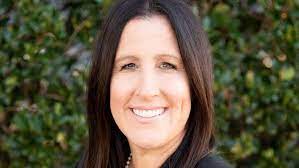By Aaron Miller-
The state of Louisina in the U.S is now forcing people to provide age verification to watch pornography, due to a new law that goes into effect tomorrow.
Louisiana is making it mandatory to verify their age if accessing websites containing at least a third of pornographic material.
The new law requiring age verification for any website that contains 33.3 percent or more pornographic content – was introduced by Republican state representative Laurie Schlegel earlier this year.
Schlegel explained that websites would work in partnership with app LA Wallet to verify a user’s age, adding that there would be consequences for those who failed to follow the law.
She said: “Pornography is destroying our children and they are given unlimited access to it on the internet. So if the pornography companies aren’t responsible, I figured we need to go ahead and hold them accountable.”
Sara Kelley, project manager with Envoc – the creator of LA Wallet – said the app was a ‘must have’ for ‘anyone who has a Louisiana state ID or driver’s license’.
She told WAFB that there are other ways that websites may ask users to verify their age if they are not able to access LA wallet, adding that while some personal information will be required, companies should not retain personal data after the verification process has taken place.
Kelley explained: “It doesn’t identify your date of birth, it doesn’t identify who you are, where you live, what part of the state you’re in, or any information from your device or from your actual ID. It just returns that age to say that yes, this person is old enough to be allowed to go in.”
Schlegel – who is also a certified sex addiction therapist – said someone could ‘sue on behalf of their child’ if children are gaining access to pornography.
“It would be up to the user to sue the company for not verifying age first,” she continued, arguing that problems including depression, erectile dysfunction, lack of motivation and fatigue can be linked to porn.
“It’s tied to some of the biggest societal ills of human trafficking and sexual assault,” Schlegel said.
“And in my own practice, the youngest we’ve ever seen is an 8-year-old.”
She also stressed that the law is now aiming to limit porn that adults can access, saying the bill is ‘strictly about protecting children’.
“It’s going to be up to the pornography companies to comply and obviously, how people will hold them accountable,” Schlegel said.
Earlier this month, U.S. Sen. Mike Lee, R-Utah, introduced similar legislation: The Shielding Children’s Retinas from Egregious Exposure on the Net Act. The act asks that the Federal Communications Commission enforce regulations for commercial porn sites to prevent children from accessing the content
The legislation is similar to one passed this month by U.S. Sen. Mike Lee, R-Utah known as ”The Shielding Children’s Retinas from Egregious Exposure on the Net Act. The act asks that the Federal Communications Commission enforce regulations for commercial porn sites to prevent children from accessing the content.
en. Mike Lee’s SCREEN Act asks that the FCC require pornographic websites adopt age verification technology to make sure users are not children.
Websites can choose their own means of age verification as long as it meets the FCC’s standards. Other stipulations of the bill call for the FCC to give companies proper warning and ample opportunity to fix violations.
“Every day, we’re learning more about the negative psychological effects pornography has on minors,” Lee said about the bill in a news release. “We require age verification at brick-and-mortar shops. Why shouldn’t we require it online?”
Regarding her bill, Schlegel from Louisiana wanted to make one thing clear: she’s not trying to limit porn that adults can access.
“This bill is strictly about protecting children,” she said. “It’s going to be up to the pornography companies to comply and obviously, how people will hold them accountable. If children are getting access to it … they can sue.”

